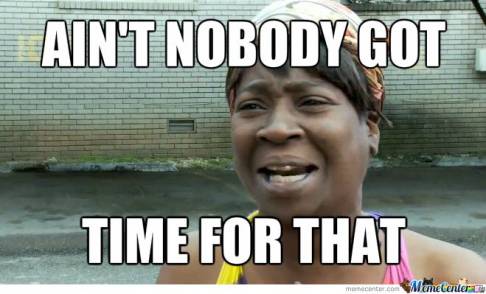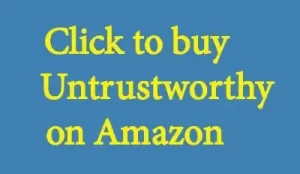Supporting Indie Authors
Are you supporting indie authors? And if you are, exactly how are you doing it? If not, how could you be doing it?
I am published, and one issue that comes up, time and again, concerns how people can go about supporting indie authors. In particular, friends and family far removed from the business of writing or social media or public relations or marketing or the like still want to help out.
And for the writers, who may feel strange suggesting or requesting such support, I hope this little guide can do just that. Instead of asking, perhaps they can simply point to this blog post.
The #1 Way You Can Support An Independent Author
This one’s easy. Buy their book! Which version? Any version!
However, authors might get better percentages of the take with a particular format. If that is the case, and you don’t mind which format you purchase, you can always ask your friend the writer.
While we always want you to buy the book (and a sale beats out no sale), if we have our druthers and it really makes a difference, it certainly doesn’t hurt to ask.
The #2 Way To Support Independent Authors
So once you’ve bought the book, a fantastic way of supporting indie authors even more is to provide an honest review. Amazon, Smashwords, and many publisher sites provide a means of reviewing novels and other creative works.
Be sure to review where you purchased the book.
Why? Because then you can be listed with verified purchase next to your name. This adds considerably more credibility to your review (and some places require it now).
The Sum and Substance of Your Review
What should you say in your review? If you loved the book, say so. If it was a decent read but not your cup of tea, say that as well, as it’s honest, fair, and remains supportive. After all, not everyone loves the same thing.
If you’re not in the demographic group the work is aimed at, then no problem. You gave it the old college try and that’s just fantastic. The longer the review then, generally, the better.
Specific references to events in the book, without giving away spoilers, really help. E. g. something like: I loved the character of ___. She was believably vulnerable.
Negative Reviews
What if you hated the book? Should you lie? Absolutely not – and, I might add, don’t lie even if the author has specifically asked for positive reviews only (an unethical request, by the way).
However, if the book stinks (I’ve read books that have made me want to burn people’s computers, they were so horrible, so I know exactly where you’re coming from), then you have the following options:
1. Don’t post the review at all, and say nothing to the author.
2. Don’t post the review at all, but mention it to the author. However be prepared for, potentially, some negative push-back, in particular if that person specifically requested just positive reviews.
You can sweeten the pot by offering some other assistance (see below for other things you can do to help).
3. Post a short review. Reviews don’t have to be novel-length! You can always write something like Interesting freshman effort from indie author ____ (the writer’s name goes in the blank).
There ya go. Short, semi-sweet, and you’re off the hook. Unless the book utterly bored you, the term interesting works.
If the book was absolutely the most boring thing you have ever read, then you can go with valiant or unique (so long as the work isn’t plagiarized) instead of interesting. Yes, you have just damned with faint praise. But sometimes faint praise is the only kind you can give out.
Really going negative
4. Post a negative review. However, be prepared for your friendship to, potentially, end. Yet is that the worst thing, ever? I’m not saying to be mean. Don’t be mean and don’t take potshots at a person’s character or personality.
This is about the book and not about your relationship with the person (although it can sometimes turn into that. But keep the review about the creative work only). However, if the friendship means more to you, then seriously consider options #1 or #2 instead.
Furthermore, many sites have star systems. Adding stars (even a single star) is helpful as this signals to readers that there is at least some interest in the piece.
The #3 Way to Support an Independent Author
Post and/or share the links to either the creative work or the author’s website, blog, Facebook Author page, or Amazon Author page, onto social media. This method is free and anyone can do it. This means tweets, Facebook shares, Pinterest repinning, or Tumblr reblogging.
Plus it’s clicking ‘like’ on Instagram, voting up a book trailer on YouTube or adding it to a playlist, mentioning the book in your status on LinkedIn, or sharing the details with your followers on TikTok, and more.
Every time you provide these sorts of social signals to social media sites, the content goes to more people and you are supporting indie authors.
Without spending a dime, and barely lifting a finger, you can provide a great deal of help.
The #4 Way to Support Independent Authors
Be sure to follow your friends’ Amazon Author pages, and their blogs. Hit ‘like’ on their Facebook Author pages and follow them on Twitter, Instagram, Pinterest, Tumblr, etc. There are agents and publishers who give more weight to indies with larger social media followings.
You can hate the book but still follow the author.
You can also work some magic in person. Show up to any signings or discussions, even if you just drink coffee and don’t participate. Ask for the book at your local library or bookstore. Read the paper version in public (train stations are really great for that sort of thing).
And you can also talk to your friends, or email them about the work.
Consider your audience, and don’t just spam your friends. However if your writer pal has written, say, a Christian-themed love story, then how about sending the link to your friend who has a son studying to be a pastor?
If your friend is local, try contacting your local paper and asking if they’d do a profile on the writer. They can always say no, but sometimes reporters are hunting around for short feel-good locally-specific blurbs. It never hurts to ask.
The #5 Way You Can Start Supporting Independent Authors
Here’s where it gets to be a time investment. Help them. A lot of serious authors ask questions about all manner of things, in order to perform proper research. Can you help with that? Do you have personal experience, or are you good at Googling?
You can also act as a beta reader when you’re supporting indie authors. Beta readers read either the entire draft or a portion of it or sometimes just the first chapter or even character bios. Here’s where you can be a lot freer with criticism, as this is all private.
Is the mystery too easy to solve? The character names are confusing? Or the protagonist isn’t described clearly? The scenario is improbable? Then tell the writer.
This isn’t correcting their grammar or their spelling (although it sometimes can be). Instead, this is giving them valuable feedback which will help them become better.
As always, be kind. This is your friend’s baby, after all. But if you can’t tell the difference between Susan and Suzanne in the story, then other readers probably wouldn’t be able to, either. Better that that is fixed before the book is released, than afterwards.
Final Thoughts on Supporting Indie Authors
The life of a writer can be a rather topsy-turvy one. You’re high on good reviews, and then you get one bad one and it depresses you. You write like the wind for weeks, and then you edit it and it feels like it’s garbage. Or you get writer’s block, or life gets in the way.
Sometimes the best thing you can do, as a friend, is to just listen, and be there.
12 Comments





You must be logged in to post a comment.